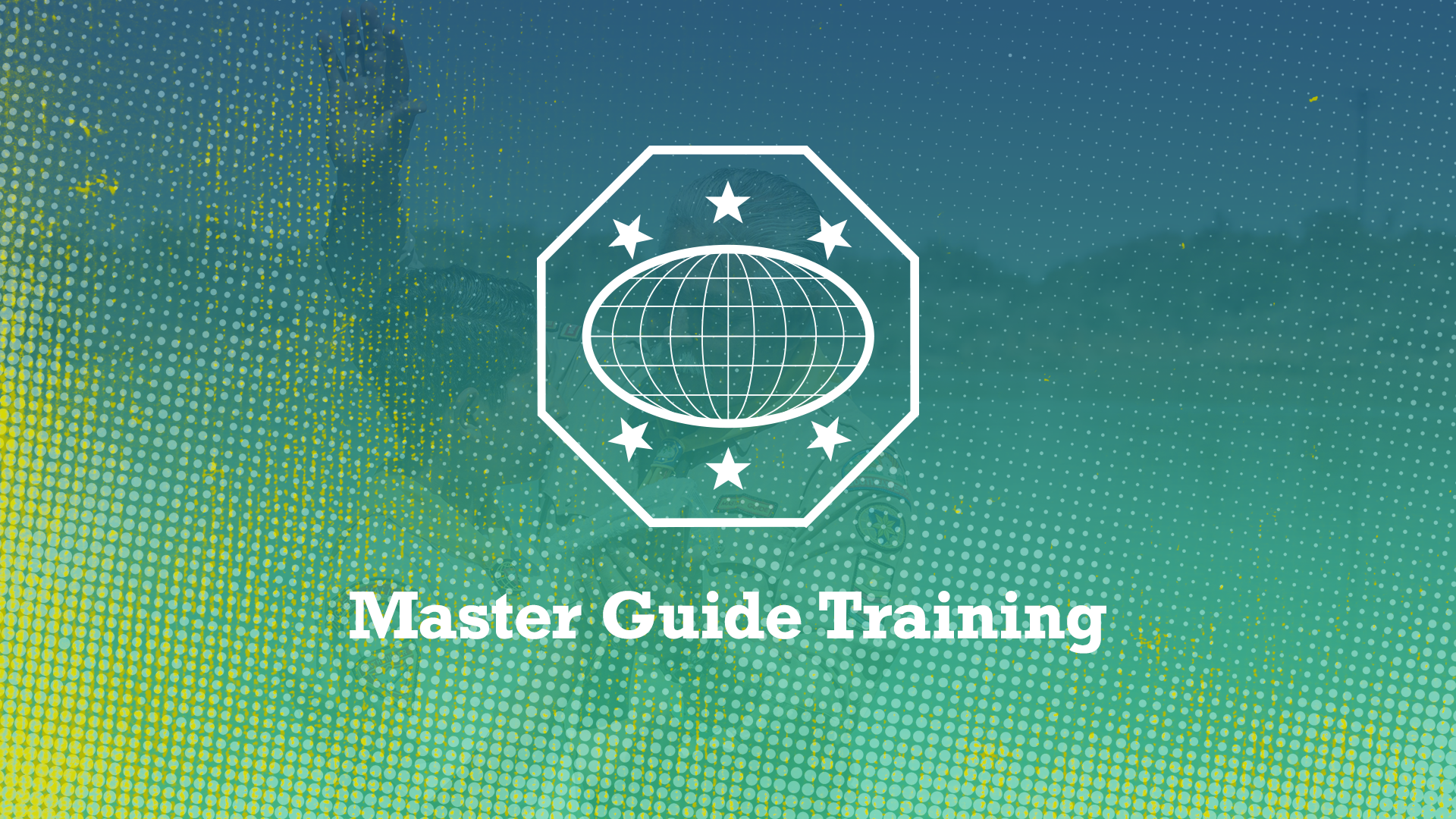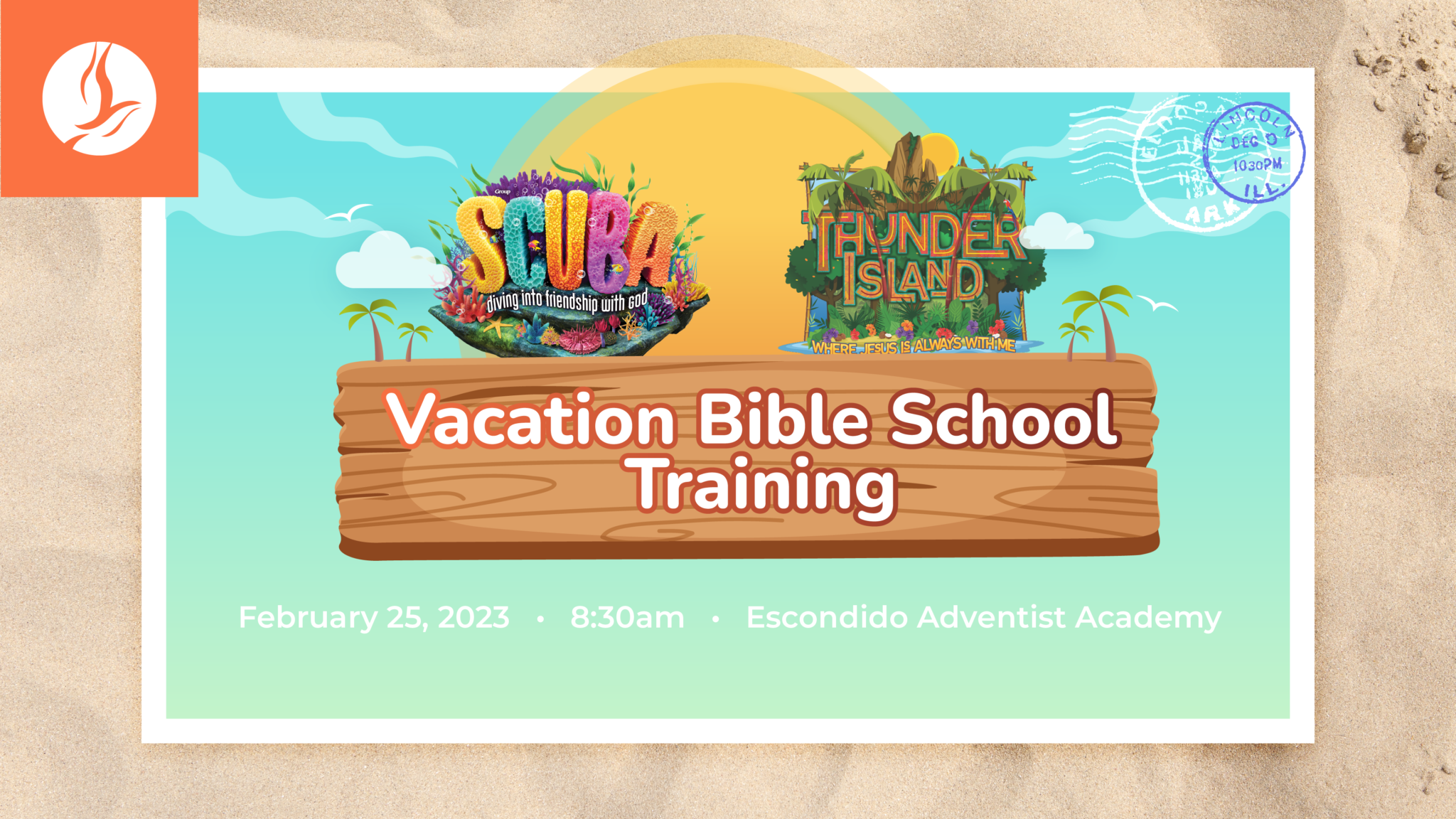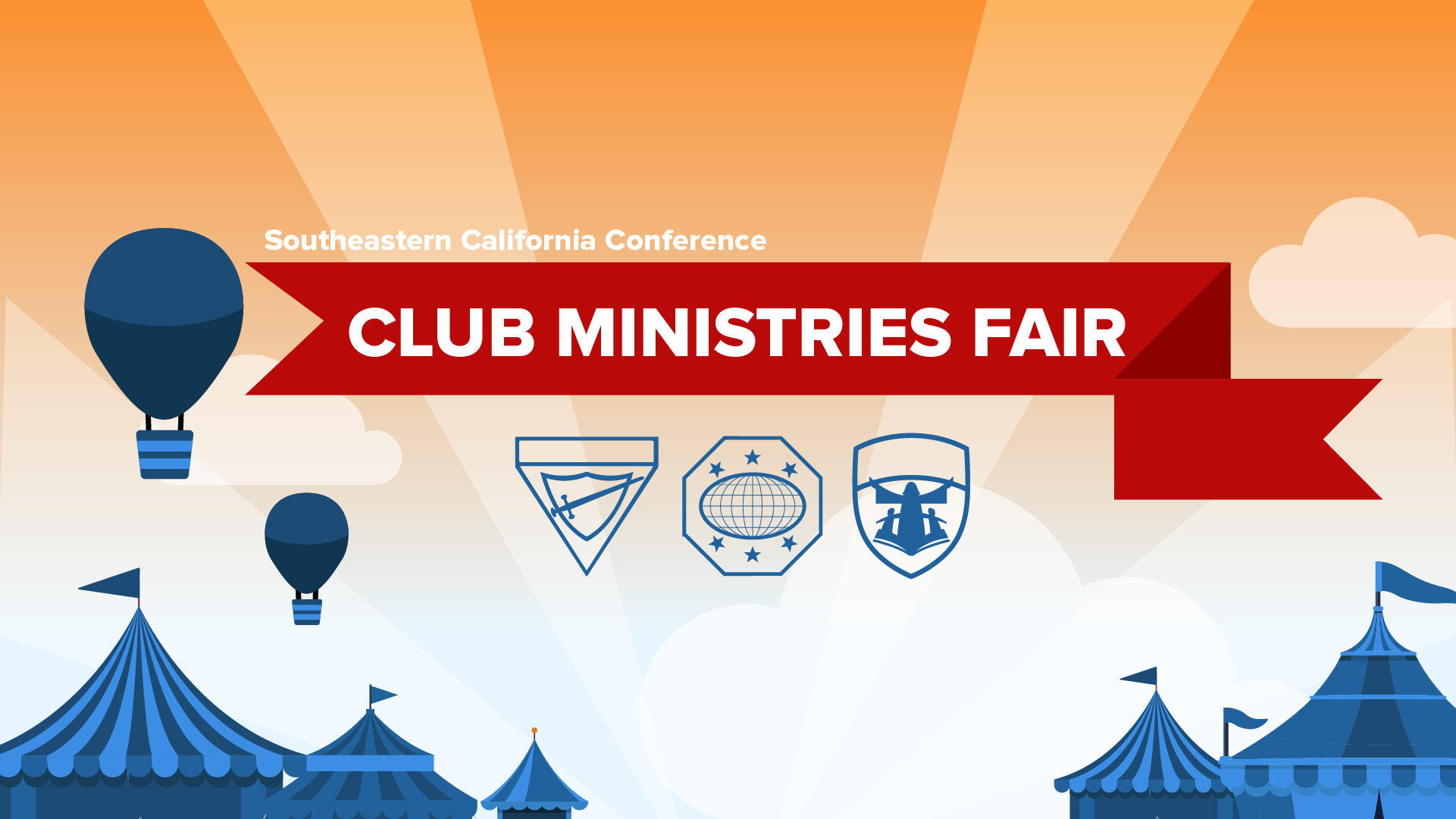
Master Guide Training
Various Dates: August, 2023-April, 2024
SECC Youth Ministries
11330 Pierce St.
Riverside, CA 92505
youthinfo@seccsda.org
(951)509-2265
Mon - Thurs
8am to 5:30pm PST

Various Dates: August, 2023-April, 2024

February 25, 2024

May 19, 2024

June – July 2024

August 16-18, 2024

September 13-14, 2024
It is mandatory that all Pathfinder & Adventurer Clubs throughout the Southeastern California Conference register every Adventurer and Pathfinder member – Adventurers, Pathfinders, Teens, Master Guides & Leaders – with SECC Youth Ministries and be covered by Club Insurance.
Registration/insurance fees are $10 per person which can be billed to the church or paid by church check. Anyone who joins/registers during the year must follow the same procedure in order to be covered by Club Insurance. Pathfinder & Adventurer functions are exempt from local church insurance.
The official Club Ministries year is similar to the school calendar, September 1 – August 31. Pathfinder and Adventurer club registration should be submitted after September 1. Although there isn’t a hard deadline for registering the Pathfinder or Adventurer clubs with the conference, we encourage a timely submission to cover liability and insurance. Registration needs to be submitted to the SECC Youth Ministries office two(2) weeks prior to an outing or conference event.
Pathfinder and Adventurer Clubs can register the local club by following the process below. Once the registration process is completed and submitted to SECC Youth Ministries, the club is recognized as an active club with the Southeastern California Conference.
The club director or secretary will:
Suggested Items to Include in Local Registration
Clubs registrations can include, but is not limited to the following:
Below is a list of club membership definitions.
Anyone joining either a Pathfinder or Adventurer Club must complete the Membership Registration | Insurance Form and turn it into their local club each year. Adults (18+) must also do the following:
Every Pathfinder & Adventurer Club in the Southeastern California Conference is required to participate in the conference group accident policy. The premium must be paid by every member even if the parent/adult has other insurance. This is the basic policy that pays for medical expenses arising from an accident/incident during a club activity or while traveling to or from such activity.
Coverage is a twelve month period from September 1 to August 31. Insurance payment is included in the $10 registration | insurance fee paid to the conference and is billed to the church upon submission of the club registration form.
Pathfinder & Adventurer clubs in the Southeastern California Conference may be covered by a couple of types of insurance. Select for descriptions of each.
Note on Mandatory Club Insurance
If you find some parents who wonder why they should be required to pay for Club Insurance, you might find some of OUR reasons helpful:
1. It protects the child – many medical institutions require proof of insurance before administering medical diagnosis or treatment. The letter from the Conference Risk Management department may be copied and used as proof of coverage and should be taken on all outings. Without this it would be necessary for each club member to bring proof of insurance to each function in order to obtain immediate care.
2. It protects the parent –
A. Parents don’t have to try to collect from their insurance company. (Parents would have to get proper forms filled out by attending physician and supervisors.)
B. Many personal or employee medical/accident policies exclude activities organized by established institutions such as youth organizations. Parents could pay thousands out of their own pockets.
C. It will NOT jeopardize parent’s insurance or low rates.
3. It protects the church, club, and staff from discontentment and law suits.
A. When a child is injured on an organized, activity the natural reaction of any parent is to blame the directors for poor supervision or bad judgment. The parents usually feel that since it happened under your care, you pay the bill. It is very nice at that heated moment to be able to say, “don’t worry, Club Insurance will pay for the medical expenses.”
B. For some strange reason it seems that when the insurance is optional, the one who has an accident doesn’t have insurance. It is impossible for a director to know for sure who does and doesn’t personally carry accident coverage.
C. Uninsured parents probably don’t have the money to pay for even a minor accident. A major accident could wipe a family out financially. With no personal insurance or Club Insurance, and limited financial means, the only recourse is to sue, no matter how trivial the cause or injury.
For the above reasons, the conference officers and the Pathfinder and Adventurer coordinators have decided that the low yearly cost for Club Insurance justifies making it mandatory.
The following is information and forms for club trips & outings:
The Seventh-day Adventist Church is very active in nurturing our youth through Sabbath Schools, Pathfinders, Adventurers, VBS and our extensive educational system. This priority on youth also means our attention to safety must grow more intentional as abuse in society increases. We believe that children are our most precious gift form God – and we must be knowledgeable and prepared to provide the safest environment possible for each child and young person who engages in any church activity.
The Southeastern California Conference is pleased to partner with Sterling Volunteers to provide background screening and awareness training for hose who work with our youth. Your participation in this process will help you to recognize signs of abuse and neglect; become aware of behaviors of potential abusers; learn the church policies in this area as well as the requirements of your stat’s child protection laws and finally, give guidance to respond when there is suspicion of child abuse and/or neglect.
On behalf of the parents, children and young people of the church, thank you for your participation. Together we can make a difference.
Policy: Any SECC local church that will use volunteers in any capacity is required to follow this SECC Church Volunteer Policy. There are two types of volunteers, with additional requirements for the volunteers working frequently and closely with children. Please make sure that the volunteer is properly identified for the services he/or she will provide to the church. All documents that the volunteer is required to complete and/or sign, must be uploaded here VOLUNTEERS for record keeping and clearance for volunteer services.
Volunteer Categories:
• Volunteer l: A church volunteer with infrequent, minimal to no contact with children, and does not work more than 16 hours in a month or 32 hours in a calendar year with children. Examples: Kitchen or potluck helper, adult Sabbath School leader.
• Volunteer ll: A church volunteer who works with children on a frequent, regular basis, i.e., more than 16 hours in a month or 36 hours in a calendar year or goes on any overnight outing with children). Examples: Pathfinder leader, regular Children’s Sabbath School teacher.
Volunteer List and DMV Requirement – Applicable to All Volunteers
• Volunteer List: Churches are required to upload a list of all their volunteers to the SECC Human Resources Department, on an ongoing basis, and must identify each of the volunteers as either a “Volunteer I or Volunteer II” as defined above. A volunteer list template (VOLUNTEER LIST.) is available to use when submitting a report of all volunteers. Please email all volunteer lists to HumanResources@seccsda.org.
• DMV Check: For any volunteer who will be driving as part of their volunteer duties (Volunteer I or II), a DMV check/clearance is required (see #2 in the Volunteer I Requirements).
Volunteer I Requirements:
• (1) Sign a Volunteer Acknowledgment form.
• (2) Register with Sterling Volunteers at https://www.ncsrisk.org/adventist/ and go through process (every two years) which provides:
▪ Child Safety Training
▪ Background Check
▪ If driving, Motor Vehicle Report Check
• (3) Wait for clearance from SECC HR to begin volunteer services.
Volunteer II Requirements:
Where to Find the SECC Volunteer Acknowledgement and “Request for Live Scan Services” Forms
• The Volunteer Acknowledgment form, and the “Request for Live Scan Services” form is found on the Volunteer tab on the SECC website at Human Resources – Southeastern California Conference. These forms must be completed, signed, and uploaded to VOLUNTEERS. These completed forms are required to be cleared to volunteer.
Questions? Please contact the SECC Human Resources Department (Human.Resources@seccsda.org, (951) 509 – 2356).
You can visit their website by clicking this link: Sterling Volunteers
Screening Church Leadership & Volunteers
The risk to the local church today is too high not to take all of the precautions necessary and rely on the data available to alert them about harmful individuals.
Screening is the “filter” to allow continued care, teaching, and ministry to take place. Screening is a means to end the anxiety and speculation involved with enlisting persons to serve. It will also help to prevent/avoid:
Churches must show due diligence to protect all pastors, leaders, volunteers, and, especially, the youth. SECC Youth Ministries will be implementing a primary screening and background check procedures for leaders and volunteers. Because of the impacts listed above, it is suggested that the church be responsible for the fees for the background check and not the leader or volunteer.
Information gathered in the screening process for leaders and volunteers is to be considered highly confidential. A church can be brought into litigation if they fail to contain documentation and its intentionally, or inadvertently, accessed by persons without proper authorization.
Volunteer screening files need to be kept indefinitely. All information should be retained in a locked cabinet. It would be best that a list of all screened volunteers be kept as a reference without having to go back through the files each time they are enlisted. Files kept on volunteers who were denied enlistment to a position should be kept absolutely confidential or reviewed by the Senior Pastor and kept in a locked file.
Screening is a very important administrative process that requires dialogue and continued accountability by a number of church leaders. It must be continued from year to year. All volunteers must be screened to keep the system consistent and secure the credibility of the church.
SECC YOUTH MINISTRIES SEXUAL MISCONDUCT POLICY
Purpose: To establish proper preventative measures to protect individuals against sexual misconduct as well as to specify courses of action in the case of allegations or an actual incident regarding sexual misconduct.
Standard of Conduct: All volunteers, whether leaders, extended or basic, of SECC Youth Ministries are expected to comply with the established policy on Sexual Misconduct. Any actions contrary to the policy will be dealt with swiftly and may include disciplinary measures up to and including termination, as well as legal ramifications when applicable.
Definitions
Common Supervisory Policies and Procedures
Please review the Youth Supervision Guidelines provided by Adventist Risk Management.
This policy is effective for Adventurers or Pathfinders who attend Adventurer or Pathfinder programs. The policy is designed to balance the privacy of the individual Adventurer/Pathfinder while allowing the Pathfinder officials to maintain a safe environment for all Pathfinders.
Tents, cabins, etc., may be searched without cause by an adult in authority, i.e., staff, director, or coordinator. This search does not extend to searching luggage and back packs of the Adventurer/Pathfinder.
The personal belongings of an Adventurer or Pathfinder may be searched by an adult in authority based on reasonable suspicion that the search will find contraband or evidence of a crime. Contraband is here defined as items that are illegal for a person to possess in California or items though legal to possess generally are illegal to possess at school.
Reasonable suspicion means more than a hunch, feeling or even suspicion. It is a suspicion that has evidence to support it. Reasonable suspicion does not mean you are certain or nearly certain.
A search for items that are banned by Adventurers or Pathfinders, but not illegal or evidence of a crime, should be limited to general tent, cabin, etc. searches, search of personal belongings with consent and things that are seen by an adult in authority. Seized items are to be returned to the Adventurer or Pathfinder at the end of the trip.
The Adventurer/Pathfinder director should be informed in advance of the search unless to delay would endanger the safety of the Adventurers or Pathfinders. The search is to be carried out in a reasonable fashion. The extent of the search should conform to the item or items that are the object of the search. Preferably two adults should be present during the search. Items taken (seized) in the search should be given to the Pathfinder director.
A limited search of the person of the Adventurer or Pathfinder may be conducted by an adult in authority based on reasonable suspicion that the search will find contraband or evidence of a crime. Contraband is here defined as items that it is illegal for a person to possess in California or items though legal to possess are illegal to possess at school.
The Adventurer/Pathfinder director should be informed in advance of the search unless to delay would endanger the safety of Adventurers or Pathfinders. The search is to be carried out in a reasonable fashion. The extent of the search should conform to the item or items that are the object of the search. Preferably two adults should be present during the search. The search is limited to removing and searching outer clothing such as a coat or sweater, asking the Adventurer or Pathfinder to pull pockets of pants out so any contents can be seen. Patting of areas of clothing that are not over sensitive areas of the person may be done. An Adventurer or Pathfinder should not be asked to remove clothing that leaves him/her naked, partially naked or in underwear. Full body searches should only be done by police authorities.
If Adventurer/Pathfinder authorities have reasonable suspicion of a serious crime, the sheriff should be contacted and Adventurer/Pathfinder personnel should cooperate with authorities.
Caution: Adventurer/Pathfinder adults in authority may have some duty to act in the place of the parent for the protection of a minor. Police should not conduct a custodial interrogation (the minor is effectively under arrest and is focused on as the perpetrator of a crime) without parental consent. Adventurer/Pathfinder authorities can not prohibit the sheriff from doing so, but should contact the parent if it occurs. If a minor is arrested and taken into custody, the Adventurer/Pathfinder authorities should contact the parents if the sheriff does not.
Contraband or physical evidence of a serious crime that is seized by Adventurer/Pathfinder authorities should be turned over to the sheriff.
Most injuries and losses that occur during field trips and outings can be traced to two areas; the planning and preparation phase or supervision and instruction. The magnitude of the injuries or losses naturally depends on the incident itself, but an additional factor is the management of the incident after the injury or loss has occurred.
Reasonable planning and preparation can avoid most problems. Adventist Risk Management ARM) has developed a tool to assist in this area. It is the Activity | Trip Planning Worksheet. Remember, this is merely a tool. It is still up to you to make reasonable decisions. You should consult with your church safety officer for additional guidance. ARM strives to provide resources and information needed to minimize risks and create a safe environment for all. For more on keeping youth safe, see ARM’s Pathfinder Safety Resources page.
Some helpful forms and information have been included:
As club leaders, you deal with minors on a regular basis, especially in situations where the parent or legal guardian is not accompanying the minor, and they cannot be contacted. Using consent to treatment forms allows you to do your job as a leader to make sure that every child is adequately taken care of in the event of an accident, illness, or injury.
Informed consent, as a legal construct, is a fancy way of saying that you give someone permission to do something. Issues of informed consent typically arise in a health care setting, where medical professionals are required to obtain approval from their patients before providing treatment. However, informed consent is required in many other situations, including church and school outings.
For a person to give valid informed consent, he or she must be provided with enough information to intelligently reason and plan a course of action including:
As informed consent requires this level of reasoning, specific groups of people cannot give valid permission such as persons with severe mental disorders, intoxicated persons, unconscious persons and, most importantly, minors.
Importance of Consent to Treatment Forms
Minors cannot legally provide informed consent for their own medical treatment, leaving the responsibility of consenting on their natural parent(s) or legal guardian(s).
Imagine you are a Pathfinder counselor taking your Pathfinders on a week-long trip to a local, national park for camping and education in nature. During the outing, one of your campers drinks contaminated water and becomes sick. You know that your next steps must be to notify both the Pathfinder director and the child’s parents. Despite multiple calls to the child’s parents, you are unable to make contact, and the child needs immediate medical care. What are you supposed to do?
The child cannot consent to medical care on their own because they are a minor. Even though you are the Pathfinder counselor, you cannot agree to medical care for the child because you are not their parent or legal guardian. If the child does not receive medical attention soon, their condition will get worse.
What could have been done to prevent this situation?
Instances like these are why consent to treatment forms are essential. As church leaders, educators, and ministers, you may deal with minors on a regular basis, especially in situations where the parent or legal guardian is not accompanying the minor, and they cannot be contacted. Using consent to treatment forms allows you to do your job as a leader to make sure that every child is adequately taken care of in the event of an accident, illness, or injury.
When is the Form Needed?
The form should be used any time the parents or legal guardians of a minor would be potentially unable to consent to medical treatment. These instances can encompass a variety of events including, but not limited to:
This list is not exhaustive but helps serve as a guide for your safety planning.
What Should the Form Include?
The form should include two sections: an authorization and consent section and a health information section.
The health information section should include the minor’s full legal name and date of birth, as well as their home address. It should also include pertinent medical information including medications the minor is taking, any allergies to food or medication, the minor’s immunization records, and health insurance information. This section could also include the minor’s blood type or primary care physician and dentist contact information. The parent or legal guardian should provide this information on the form and return it to the ministry leaders before the trip.
The authorization and consent section should include the names of the parent or legal guardian, the minor, and the church employee designated as the caregiver. A statement authorizing the caregiver to make health care decisions on behalf of the parent for the benefit of the minor should be part of the form. The parent or legal guardian should provide their signature as authorization.
The use of these forms is necessary because it helps you as a leader provide for the safety and health of every child in your care. With the information provided by these forms, the parents and guardians of the children in your care can rest assured knowing that their children will be well taken care of in the case of any incident.
SECC Youth Ministries has created a form for clubs to use for such purpose.
Making an impact by humbly going out into the world to spread God’s love through an event or activity that is set apart for this distinct task.
Missions is making an impact by intentionally stepping beyond where you live to initiate God’s Kingdom where it would not otherwise occur. It is the church going where it isn’t and spreading its faith. It is what the church does by initiating beyond its walls.
Examples:
Outreach is making an impact where you live by spreading God’s love and helping the church grow where it currently already exists. It is what the church does by existing within its walls.
Examples:
Voluntary work intended to help people in a particular area with the intent to have a positive effect on the community.
Examples:
These are just a few examples of possible projects that can be done. You can be creative and plan your own, but as you do, think about how your project meets the goal of Missions, Outreach and Community Impact. Ask yourself: “Will this initiate God’s Kingdom where it otherwise would not occur?” “Will this help our Church grow where it currently already exists?” “Will this help people and have a positive effect on the community?” If you can answer yes to one of these questions, then push forward and make an impact.
Please keep in mind that we are trying to teach our Pathfinders that they are not too young to answer God’s call to spread His word and show His love. We are showing them that they can impact the world around them and beyond. With this is mind, strive to maintain a balance by doing a variety of activities from the three categories and try to resist the urge to only stay “within your church walls”.